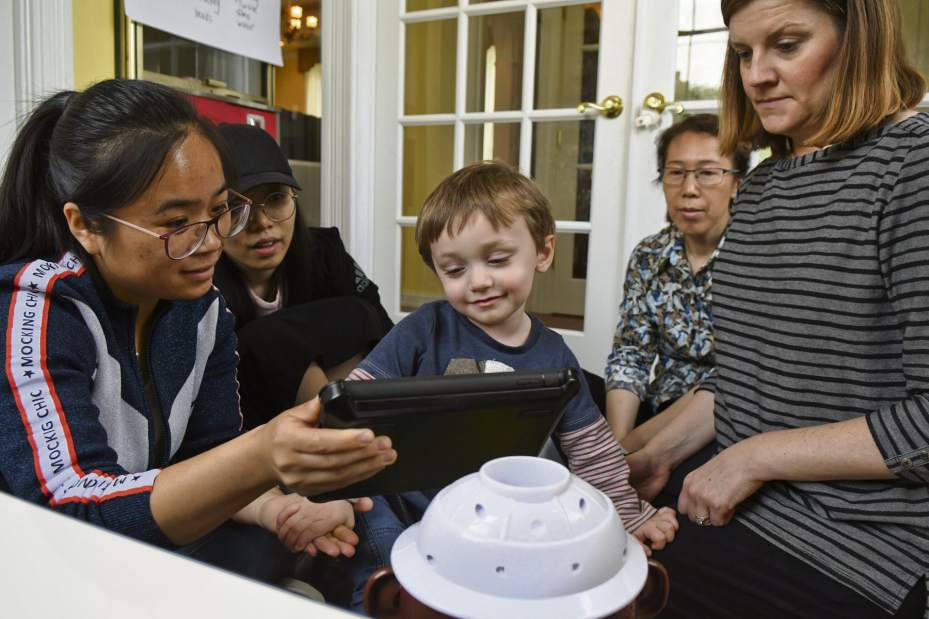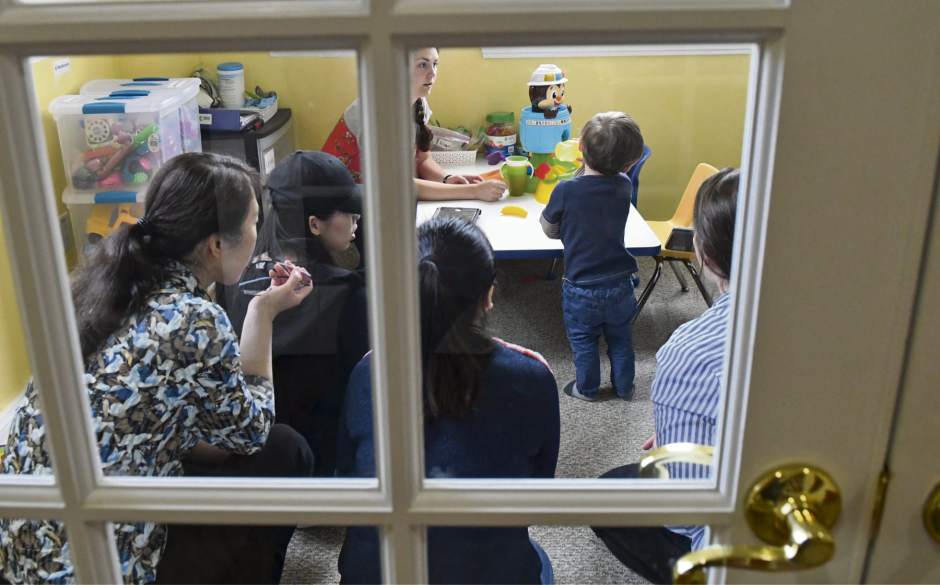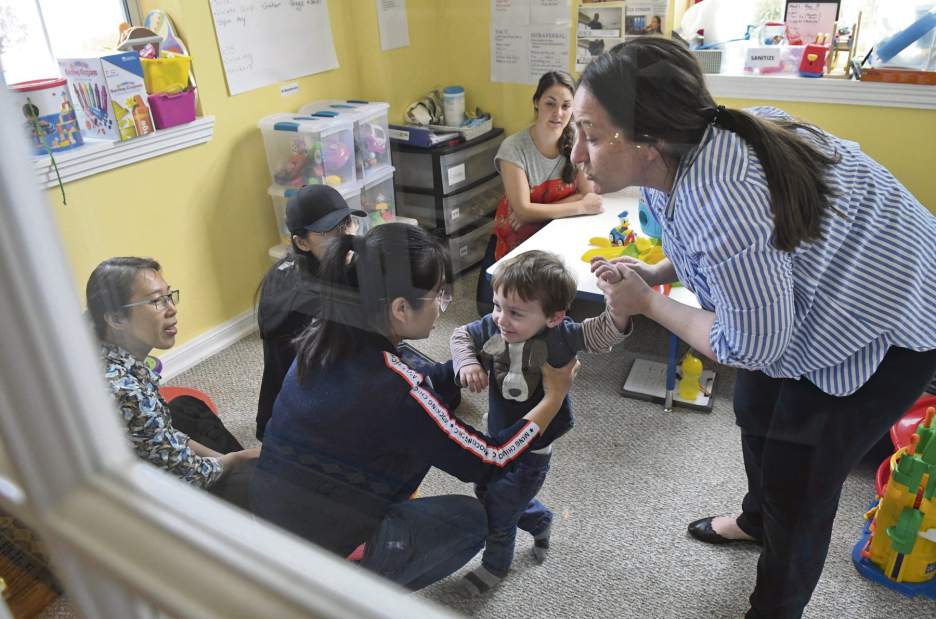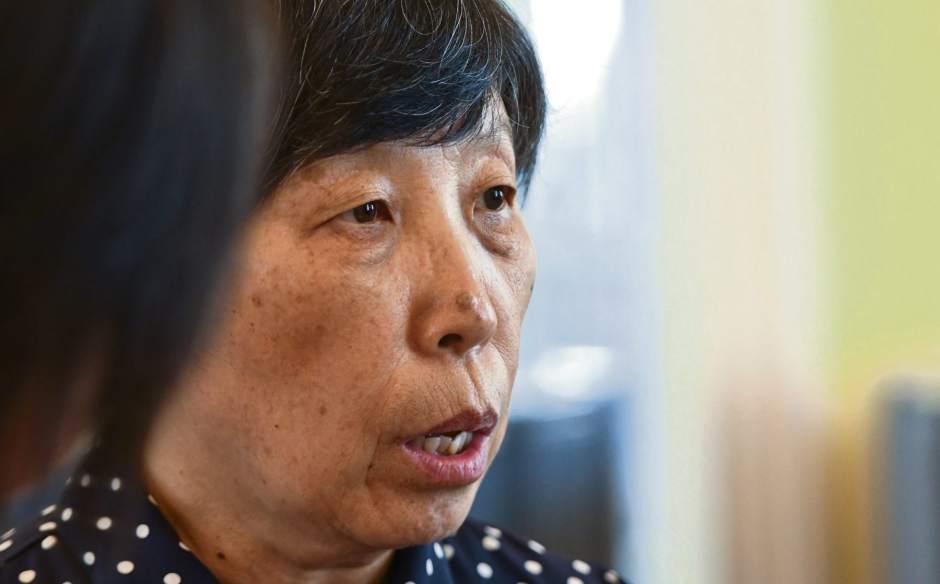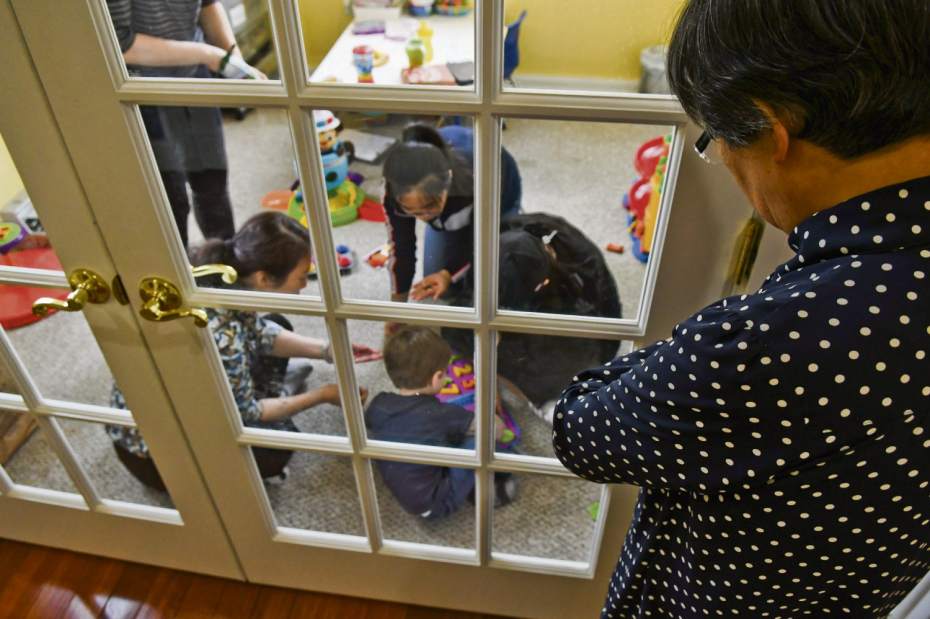Oakmont-based ministry spreads autism teaching skills to China
The South East Asia Prayer Center is again helping teachers from China learn the best methods for diagnosing and teaching children with autism.
Known as the China Care Project, the training is part of a 10-year agreement the Oakmont-based ministry has with the Chinese government to help develop a standard of care.
On Wednesday, a small group of Chinese teachers got hands-on experience working with 2-year-old Jeffrey Knepp, who in April was diagnosed with autism, as he played with an iPad and toys at the center's Fifth Street office.
"Our goal is for them to walk away with skills," said Dr. Rachel Kittenbrink, one of the training leaders and director of Pittsburgh Behavioral Services, which provides services to individuals with autism and intellectual and developmental disabilities.
The training, in its fourth year, takes place in the United States and China. This group of teachers arrived last week and will stay until July 10.
They will be trained in direct clinical services, have the opportunity to visit local school districts such as Freeport Area, Mt. Lebanon, Moon Area and Keystone Oaks, and speak with medical professionals at The Merck Child and Adolescent Outpatient Clinic at UPMC.
Training includes competency-based assessments, where the teachers participate in formal training, model skills and demonstrate their understanding, Kittenbrink said. They also observe and at times work with kids to demonstrate their skills, she said.
"The hope is, the next time we go back to China, we'll be able to see them implement these skills with their population there," she said.
Kittenbrink, who is Knepp's mother, said the training teaches participants to use the principles of applied behavior analysis, or ABA, which are research-validated strategies to help children with autism.
"I am beyond excited that the team from China has come to recognize the value of these particular strategies based in research," Kittenbrink said. "I know that, from my personal experience, there is no other intervention that I would want my son to experience, and I've been in this field for 20 years. Knowing that those children are going to be able to access that is something that is a wonderful, wonderful gift."
Dr. Jia Meixiang, deputy director of the Beijing Association for the Rehabilitation of Autistic Children, said via a translator that teachers have benefited from the training and are providing skilled treatment to children and parents in China.
"We can tell that the children are improving gradually," she said.
Seeds for the training were planted about a decade ago when the ministry went to Tibet to help build a hospital and provide medical care to children with heart defects, SEAPC Missions Director Carly Davis said.
"Because of that work, the government of China knew about SEAPC and, four years ago, asked us to help with autism," Davis said.
Teacher Jianing Pei, 31, said she already has seen a lot of advanced autism teaching methods in her short time training in America and hopes to implement her new skills when she returns to Beijing. She teaches music and communication skills to children ages 2 to 8.
"I have seen that they teach more basic life skills, more than the academic knowledge," she said through a translator. "For us, we probably emphasize more academic skills than life skills. (I) feel that (I) will probably start to teach more of the life skills to the students."
Madasyn Czebiniak is a Tribune-Review staff writer. Reach her at 724-226-4702, mczebiniak@tribweb.com, or on Twitter @maddyczebstrib.

